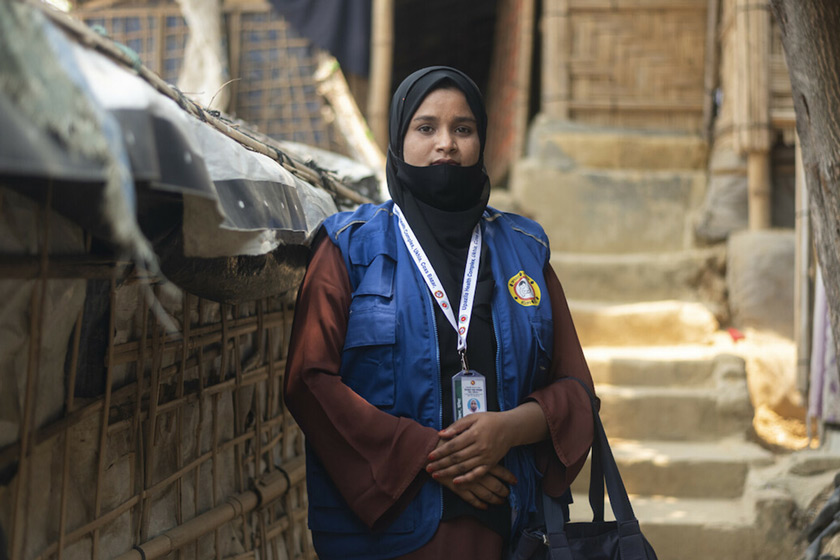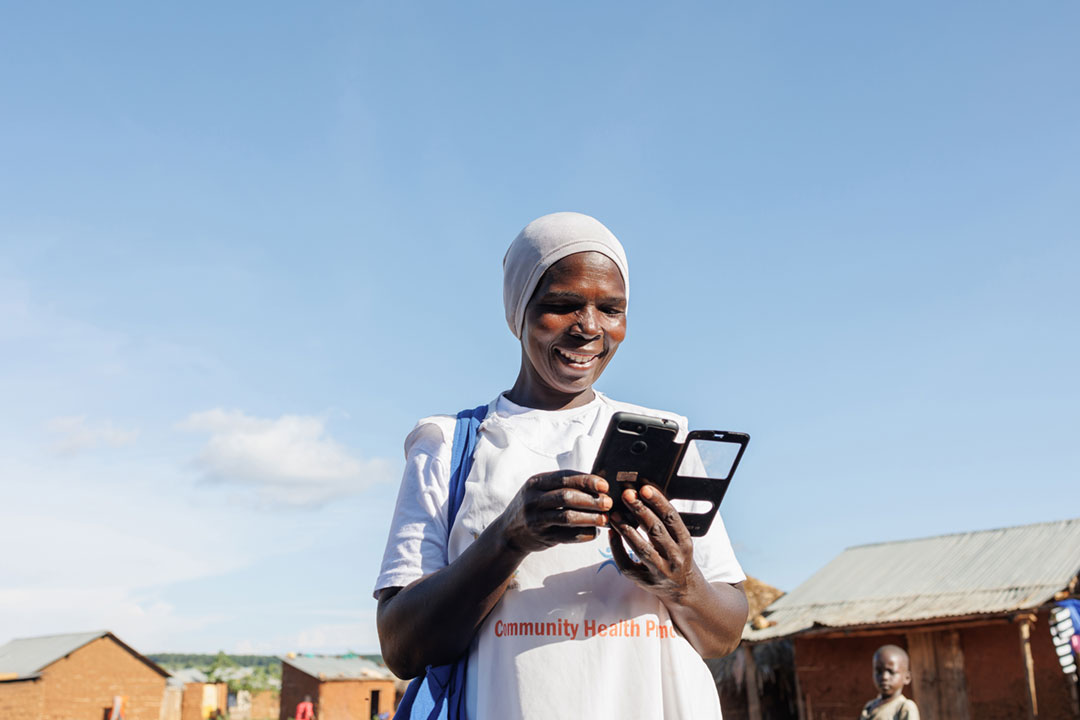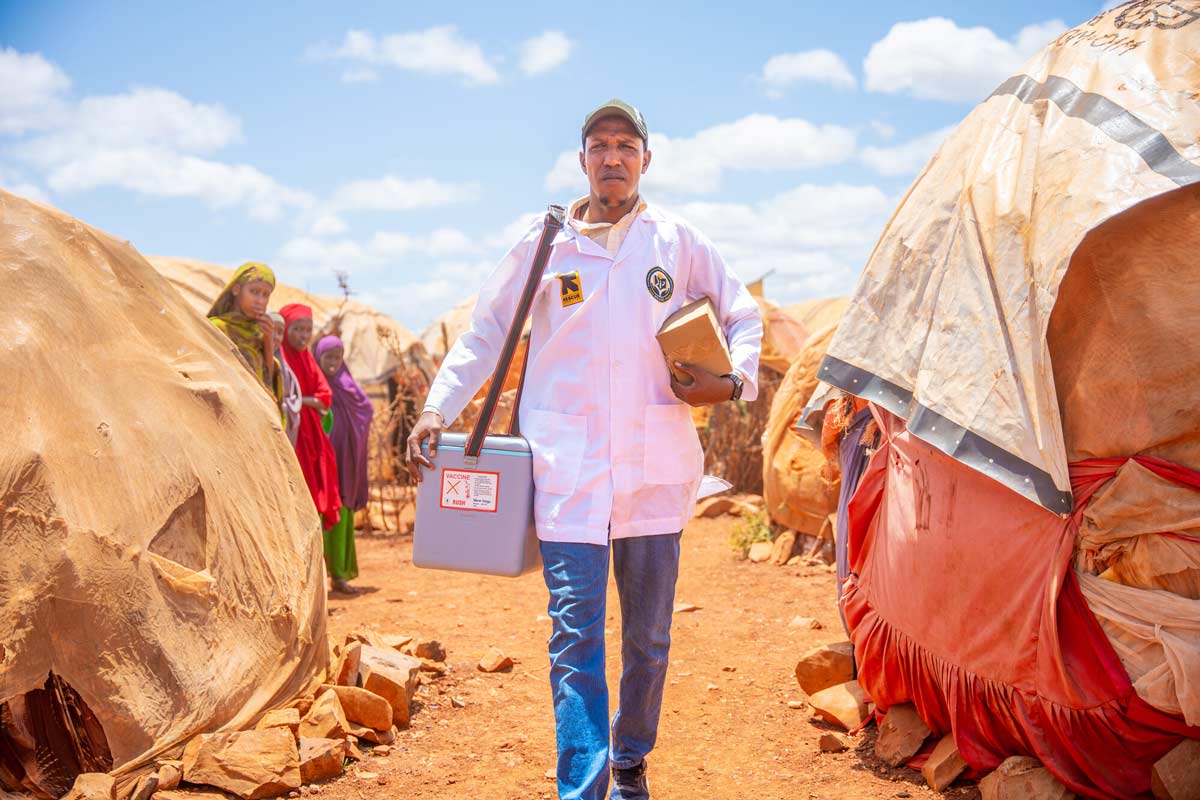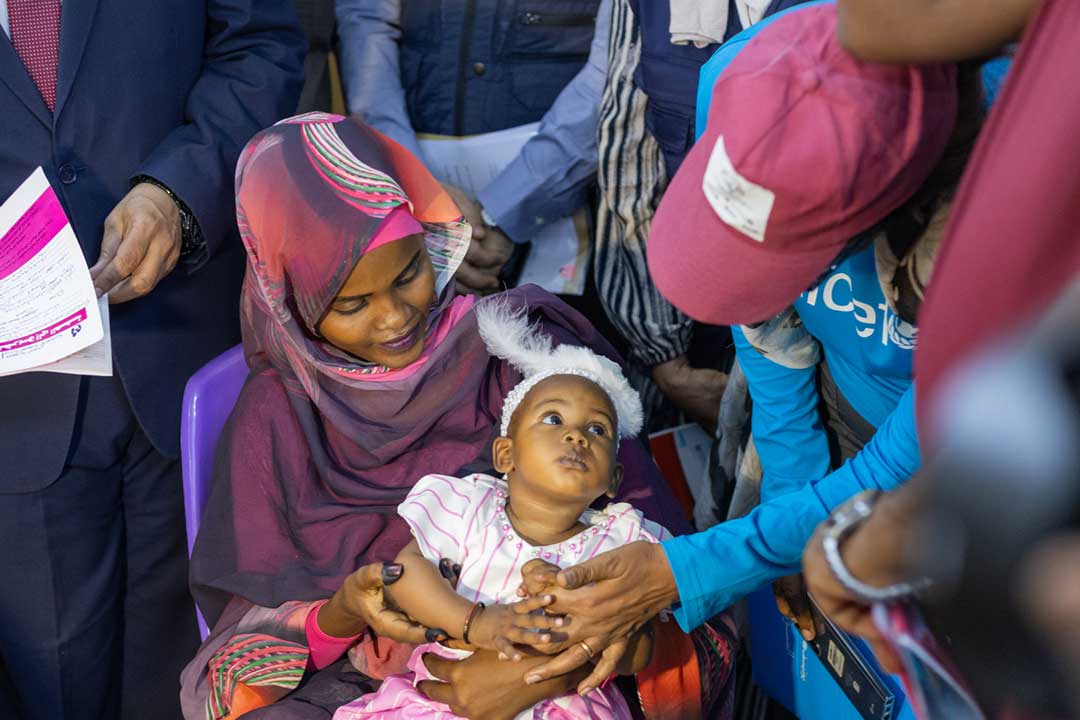Force of nature: in Nigeria, this retired nurse is not done saving lives
For Fanny Ogwu, immunisation advocate, retirement was just a new start.
- 12 April 2024
- 5 min read
- by Ian Jones , Charlotte Mbuh
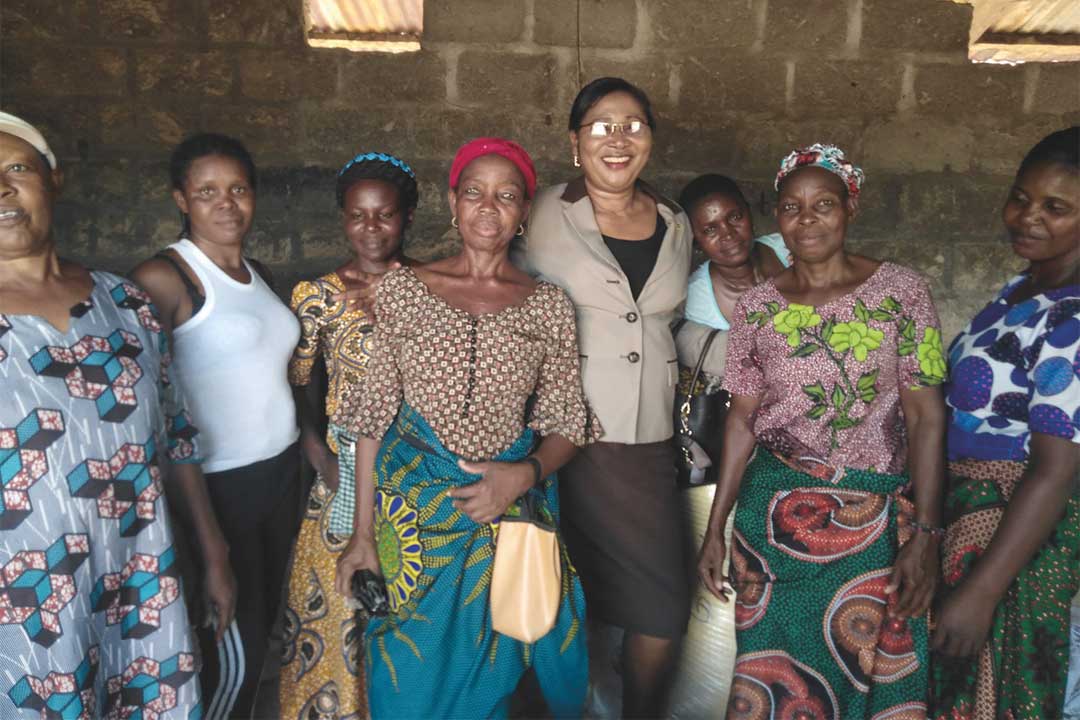
In some countries, civil servants are held to a mandatory retirement age. Some may see this as an opportunity for some well-earned rest. Others may feel they still have a lot more to give. Fanny Ogwu is definitely in the latter group.
A qualified nurse, Ogwu spent 20 years in the Federal Ministry of Health in Lagos, Nigeria. When she reached mandatory retirement age, she decided to continue working in health on a voluntary basis as a health advocate, drawing on her extensive experience, with a focus on women's sexual and reproductive health and immunisation.
One issue that she took a special interest in was the plight of three remote villages in Ndokwa-West Local Government Area in Delta State, on the south coast of Nigeria, an area close to where she grew up.
"These three villages, Okpochini, Akakpani and Abam-Ogo, have large numbers of zero-dose children. They are small, each with about 250 households, and very hard to reach, with very little road access, and the nearest primary health care centre is 30 kilometres away. Because of their inaccessible location, they are not included in district microplans."
This situation created a challenge. Remote communities had little awareness of the benefits of immunisation, so demand for immunisation services was low. And with little pressure from the villages to provide services, the local immunisation programme was not making the efforts needed to reach communities.
Ogwu has been an enthusiastic contributor to the Geneva Learning Foundation's (TGLF's) peer learning programme for immunisation staff. Having signed up to the Movement for Immunization Agenda 2030 (IA2030), whereby health workers pledge to help each other tackle a local immunisation challenge and collectively achieve IA2030 goals, she has shared her extensive experience with others.
When joining the movement, she selected a challenge that mattered for her community. Ogwu chose to focus on ensuring that residents of the three villages received immunisation services. This, she realised, would require action on several fronts.
"To bring about change, I realised I needed to work with a range of different groups – the communities themselves, managers and decision-makers in the immunisation programme, health workers who actually deliver services, and other stakeholders who might be able to wield influence or provide resources."
Her first priority was to raise awareness among the village communities about the benefits of immunisation. First, she made contact with the village elders and their close associates. Having these people onside was vital if she was to be able to talk to community members.
"I went along with a little token and explained who I was and what I was hoping to do, and they gave me the go-ahead to talk to people in the community."
Because she knew the local area, she was well aware of the local culture and beliefs. She was mindful of the need not to be seen as an outsider dismissive of traditional ways of thinking.
Have you read?
"The village communities believe in spirits that cause disease and death. They do not see the need for things they know nothing about, like vaccines, as a way to prevent disease. We need to be respectful of these beliefs, while raising awareness of the potential of medical advances to save lives and prevent illness."
As for the supply side, she also got in touch with District Primary Health Care/Immunisation Programme Coordinators. Armed with data about the lack of coverage, she was able to persuade them of the need to include the villages in local microplanning.
A third critical group was the health workers themselves, who are the crucial interface with communities. As well as immunisation, there was an opportunity for them to deliver other health services that communities were missing out on, such as child nutrition and disease prevention strategies. There needs to be a strong and trusting relationship between health workers and communities, says Ogwu, but the two groups had yet to get to know each other.
"A key part of my role is to act as the mediator between communities and the local system, helping to build bridges and establish trust. For example, we went on a successful joint mission to deliver COVID-19 vaccination to the local villages. This really helped the health workers get to know the communities."
Fanny went on to talk to important individuals within the community. She ensured traditional birth attendants were affiliated to primary health care facilities so that births could be registered, and immunisation arranged. Importantly, she also engaged with community leaders, to help identify community volunteers and supporters. Through these contacts, she was able to involve the community in the planning of services, so that they were available at convenient times.
"Most local people are farmers, and their priority is working in the fields. Health clinics are typically not open in the evenings or weekends, so people had almost no access to health care services. However, on market days ('Eke-Ukwu' days) people do not work in the fields, and we agreed that this would be an ideal day on which to offer outreach immunisation services in the community."
Her efforts have borne fruit, with immunisation services finally reaching the villages. The success, she suggests, has been based on extensive engagement with many different groups in the villages – including the community leaders, women's associations and the new community health workers.
"What I learned is that immunisation programming must be people-centred, and as such, efforts should be made to carry people along for acceptance, and to ensure demand and the sustainability of services. Working with the community to address their concerns, risk communication and feedback, created trust and confidence in the health system. Trust is fundamental to a strong relationship with communities, and the basis for effective partnerships."
Her project was a model of how to engage effectively with communities, with the design of services shaped by community needs.
"It was important to schedule immunisation days that are compatible with their activities. Other important factors included relating to them in their local language and involving them in the entire process. We need to work in collaboration with communities, not just see them as passive recipients."
Learn more
- Download the complete IA2030 case study: Ogwu, F., Mbuh, C., Jones, I., & Sadki, R. (2024). Fanny Ogwu. Building bridges: Ensuring inaccessible communities are reached in rural Nigeria (IA2030 Case Study 28) (1.0). The Geneva Learning Foundation. https://doi.org/10.5281/zenodo.10039145
- Learn more about the Movement for IA2030 and Teach to Reach.
